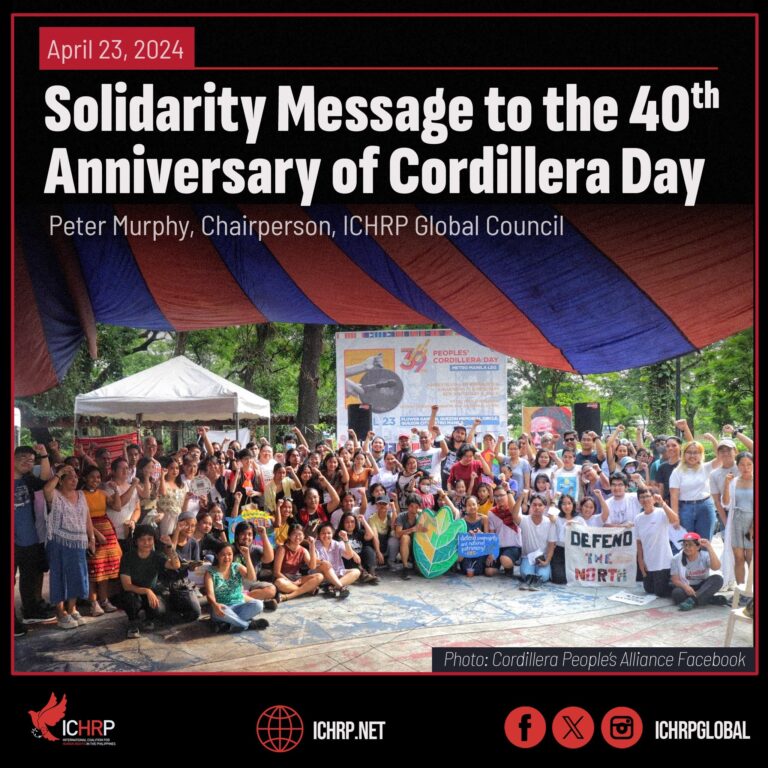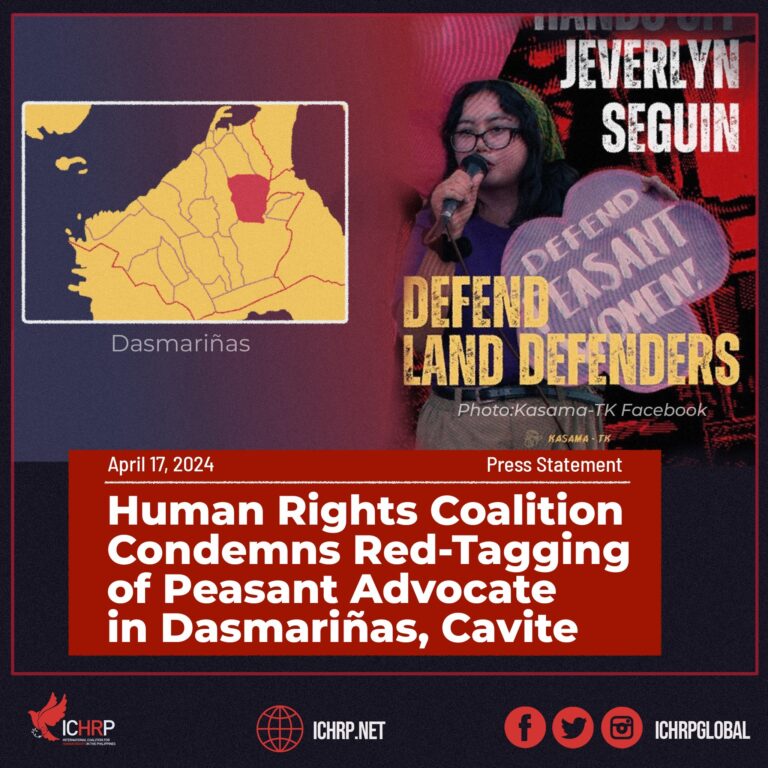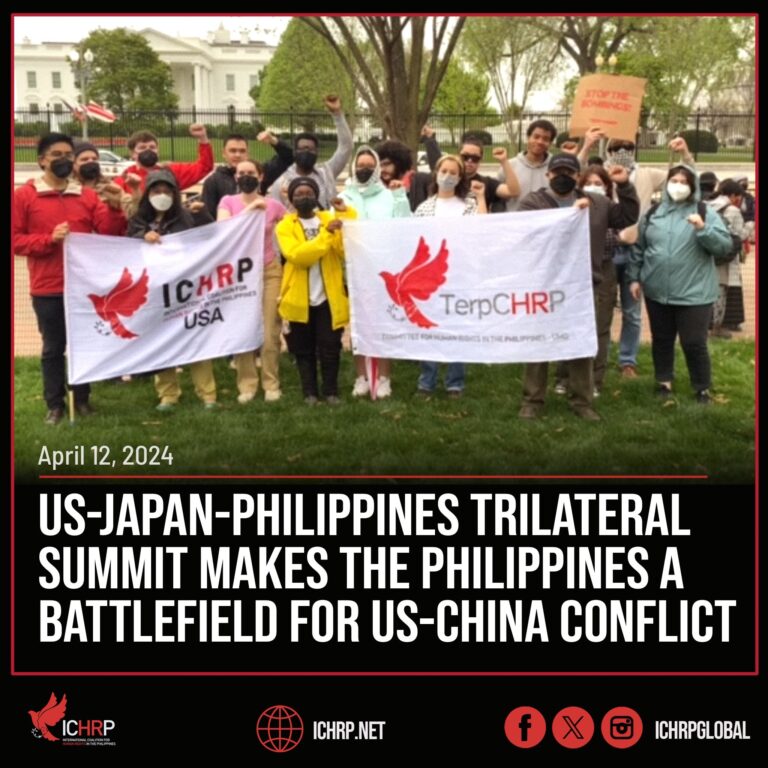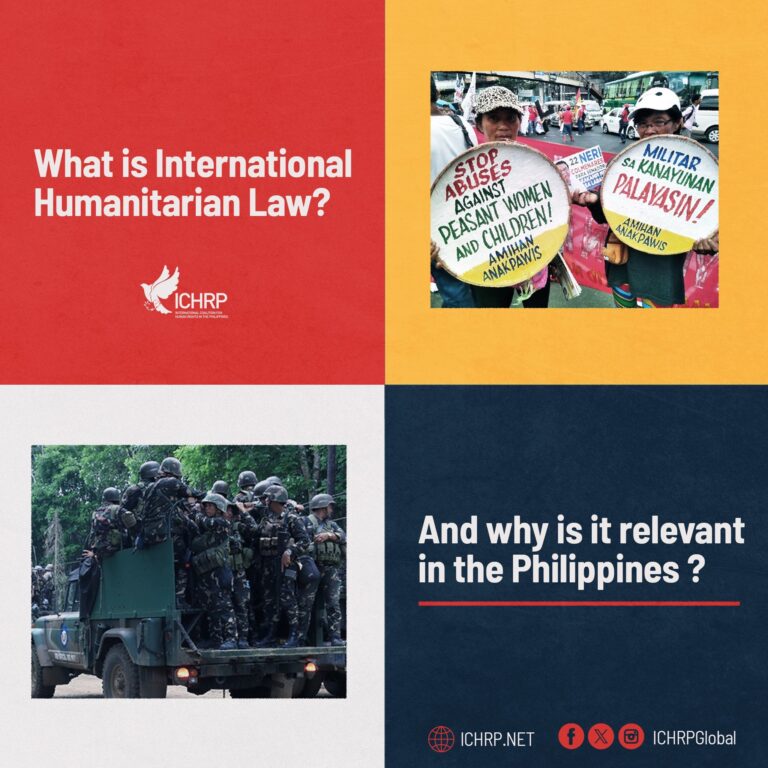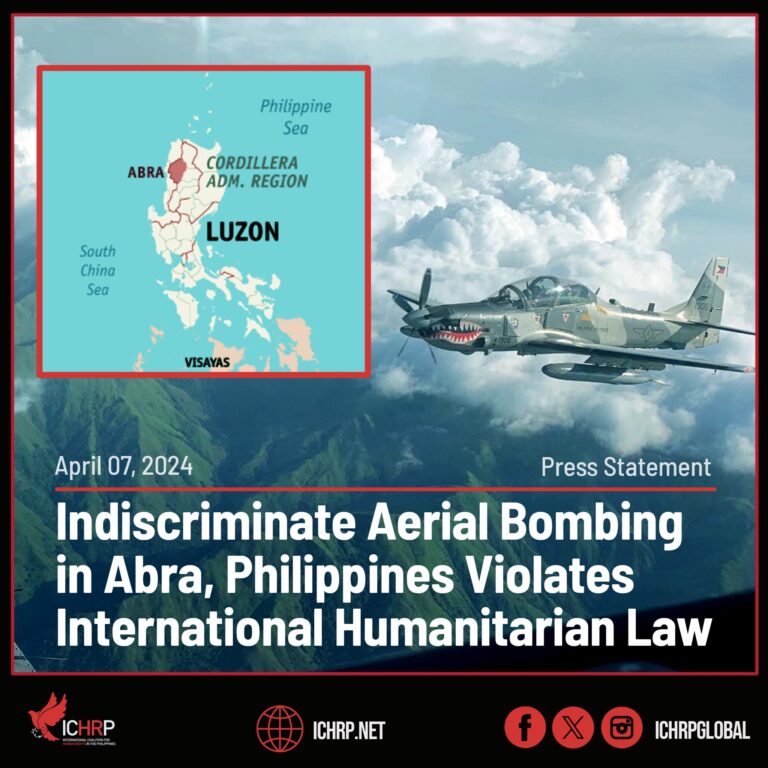From Peter Murphy, ICHRP Global Council Chairperson
April 23, 2024
The International Coalition for Human Rights in the Philippines (ICHRP) sends its warmest greetings of solidarity to delegates attending the 40th Anniversary of Cordillera Day on April 23 – 24, 2024.
ICHRP joins with you to remember and celebrate the life of Macli-ing Dulag and the people’s victory against the Chico Dam project. We stand alongside you in your fight for self-determination, land and life. We salute the Cordillera Peoples Alliance and recommit to the Save Cordillera Campaign against repression by the US-Marcos Jr. regime.
On April 24, 1980, soldiers of the Philippine military under the Marcos Sr. regime assassinated Macli-ing Dulag, a tribal chieftain from the province of Kalinga renowned for his staunch opposition to the World Bank-funded Chico Dam Project. The project threatened to displace hundreds of thousands of indigenous peoples from their ancestral land in the mountainous region of northern Philippines.
The murder of Macli-ing Dulag was a watershed moment in the Cordillera peoples’ struggle for self-determination. As the mass movement against both the Chico Dam construction and Marcos Sr. dictatorship grew, the Macli-ing Memorial was held to commemorate the death of the slain tribal leader from 1981 to 1984.
Following the founding of the Cordillera Peoples Alliance (CPA) in June 1984, the commemoration’s name was changed to Cordillera Day in 1985. The mass movement broadened as it aimed to unite the struggle of indigenous peoples across different provinces in the Cordillera, while building solidarity with national and international advocates and supporters.
Since its inception, Cordillera Day has been a political solidarity event gathering thousands of indigenous peoples, advocates, supporters, and solidarity activists every year to discuss burning issues which plague not only indigenous communities but also the Filipino people at large.
The Cordillera Peoples Alliance’s international solidarity work led to a conference of indigenous leaders and advocates from different countries across the globe in November 2010, which subsequently founded the Indigenous Peoples Movement for Self-Determination and Liberation (IPMSDL), a global network committed to advancing the rights of indigenous peoples to self-determination, land and life.
As a solidarity organization committed to campaign for a just and lasting peace in the Philippines, ICHRP draws boundless inspiration from the Cordillera peoples’ valiant and historic struggle for self-determination amidst decades of attacks, discrimination, militarization, and oppression.
We wish you every success in the two-day celebration of the 40th anniversary of Cordillera Day.
Agbiag ti Kordilyera!
Long live the Cordilleran people’s struggle for self-determination!
Long live the martyrs and heroes of Cordillera!
Long live international solidarity!



